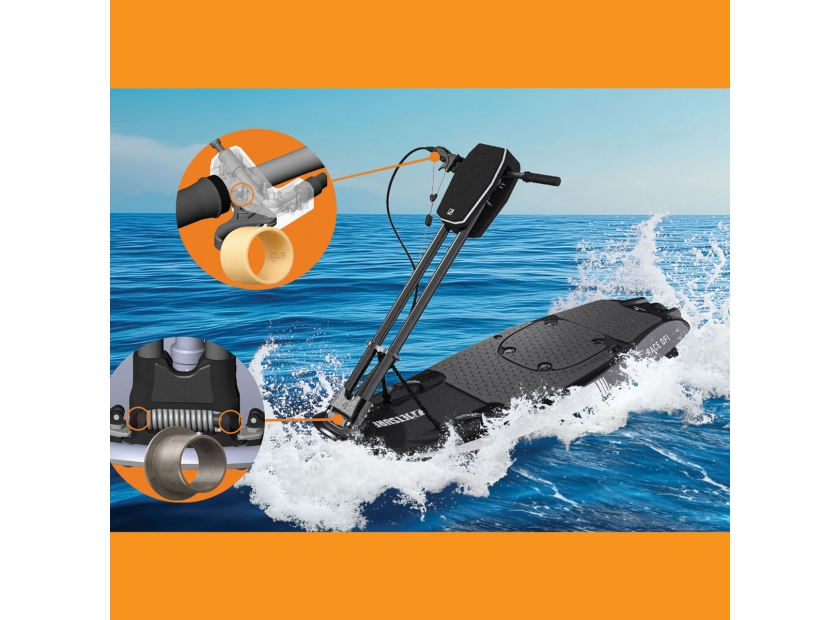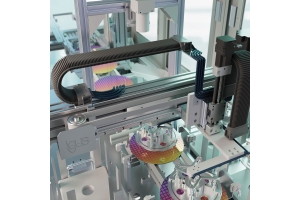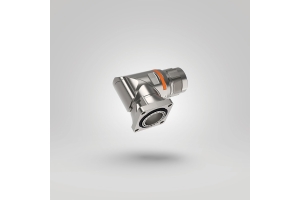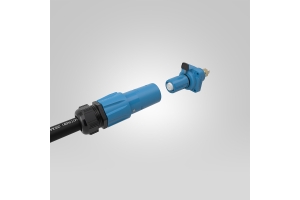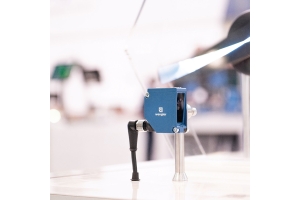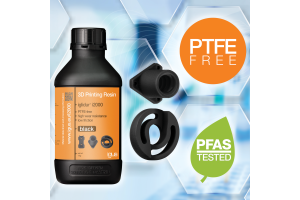Dash across the Water
Dash across the water without corrosion
Jetsurf sports equipment: MSR Engines increases reliability with lubrication-free and corrosion-resistant polymer bearings from igus
Rushing across the water on a motorised surfboard: the Jetsurf combines the thrill of jet-skiing with the feel of a motorbike. The engineers at Czech manufacturer MSR Engines rely on igus plain bearings made of high-performance plastic to ensure that the fun in salt water is not spoilt by technical failure. The polymer bearings make the sports equipment more efficient in many respects.
Jetsurf is a motorised surfboard that users ride standing up. They steer it with a handlebar and by shifting their body weight. A small jet drive, powered with petrol or electrically, moves the board across the water at speeds of up to 60km/h. The manufacturer, MSR Engines from Brno in the Czech Republic, speaks of the thrill of jet-skiing with the feel of a motorbike - manoeuvrable, powerful and exciting. For the founders of MSR Engines, Jetsurf is another opportunity to prove their design expertise. Starting in 2005, they first developed combustion engines for motorsports, for well-known customers such as the BMW F1 team and the Red Bull KTM MotoGP team. As of 2008, when many racing departments were affected by the economic crisis, the engineers concentrated on building motorised surfboards. They initially launched a version with a combustion engine, followed by one with an electric motor.
The challenge: finding plain bearings for constant contact with salt water
Just as with the engines for Formula 1 teams, the design engineers faced challenges with the motorised surfboard. For example, they had to find specialised plain bearings for the handlebar bracket and the throttle grip. This was no easy task as the bearings had to fulfil several requirements at the same time: they had to be free from corrosion and maintenance, shock-resistant, compact and lightweight, and operate without lubrication. "We knew that it wouldn't be possible to realise the project with traditional metal bearings," says Martin Hlaváč, Research and Development Engineer at MSR Engines. Instead, the design engineers rely on plain bearings made of high-performance plastic from igus. Flanged bearings made from iglidur P are used in the handlebar bracket to allow for smooth pivoting movements. Due to their thermal stability and low total moisture absorption, the iglidur P bearings are among the most dimensionally stable outdoor all-round bearings for changing environmental conditions. In addition, iglidur J bearings are found in the throttle grip, with which the user controls the engine power. As versatile endurance runners, they ensure smooth and controlled rotary movement of the handle.
Polymer bearings make Jetsurf more durable and sustainable with less maintenance
The polymer bearings fulfil the Jetsurf's high demands. Unlike metal bearings, they are 100% corrosion-free, even in constant contact with salt water. In contrast to many conventional plastics, they absorb so little moisture that they retain their dimensional stability for years. Another advantage: the solid lubricants in the material mean that lubrication with oil or grease is superfluous. This eliminates the need for maintenance and lubricants, which saves both time and costs. There is also no risk of these substances ending up in the water and polluting the environment. Last but not least, the polymer bearings weigh around 80% less than comparable metal bearings, which suits the engineers as they prioritise light constructions and a long reach. Thanks to carbon materials and lightweight parts such as the polymer bearings, a Jetsurf weighs just under 20kg - a fraction of a jet ski, which usually reaches over 300kg. "The polymer bearings from igus are exactly what we were looking for"," concludes Hlaváč. "They help us make the Jetsurf more durable, less maintenance-intensive and more sustainable."

